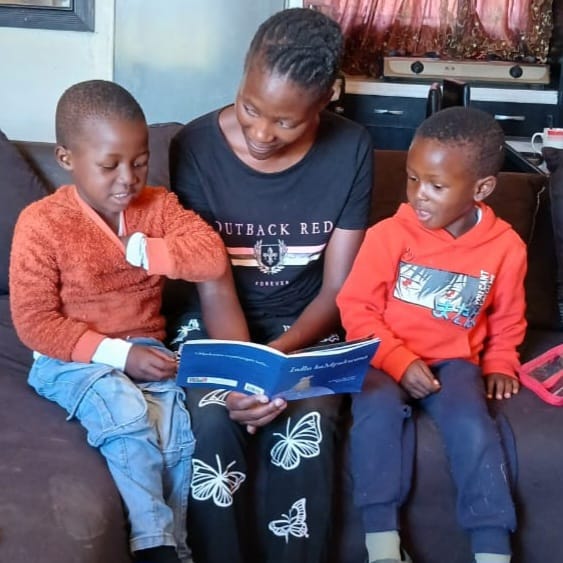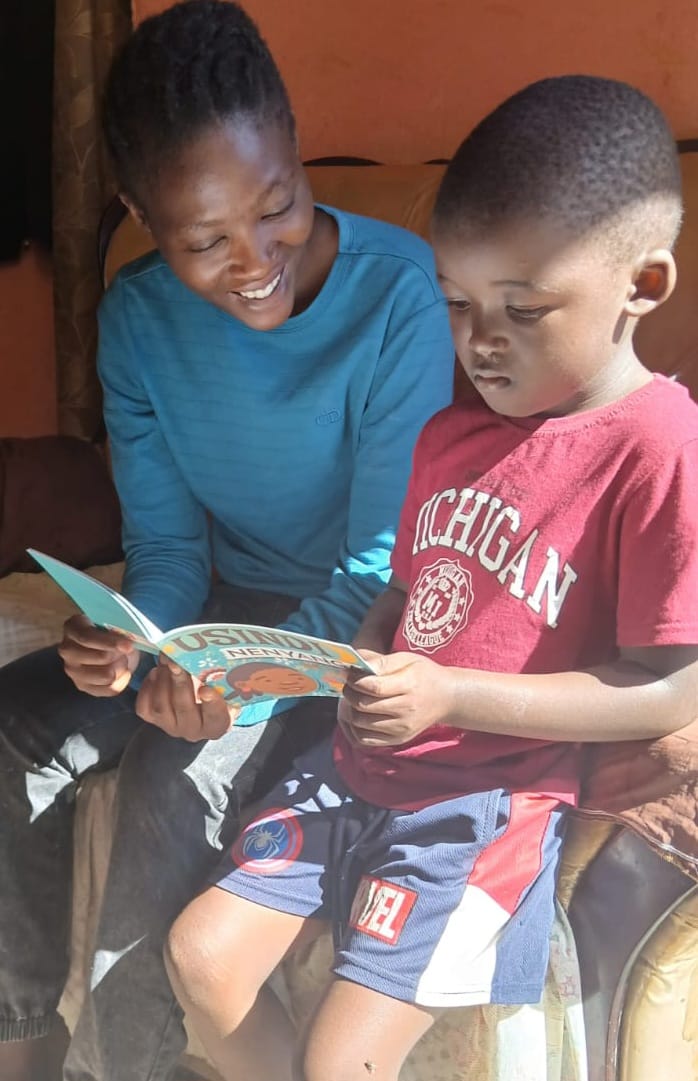Beyond the Centre: How a Home Visiting Model is Closing the ECD Access Gap in Rural South Africa
12 Aug 2025
In South Africa, the early childhood development (ECD) conversation is still largely dominated by centre-based models. Yet in communities like Molteno in the Eastern Cape (where infrastructure is limited, poverty is entrenched, and many families live far from any formal care facilities) this approach leaves too many young children behind.
According to South Africa’s 2022 ECD Census, only 35% of children aged 0–5 attend any form of non-school ECD programme on a given day. This means that approximately 65%, or around 2.26 million young children, do not have access to structured early learning opportunities. For many of these children, particularly in rural areas like Molteno, the absence of nearby centres, infrastructure constraints, and economic hardship all contribute to the systemic exclusion from early learning. The result? Children enter the school system developmentally unprepared - not because of an innate learning disability, but because the system itself has created barriers to their development.
This is the gap that the Khululeka Family Home Visiting Programme (funded by RCL FOODS' corporate social investment) was designed to fill.

A Model Refined Over Two Decades
For over 15 years, Khululeka has been developing and refining an integrated home visiting model to support families from conception to age five. The Molteno programme represents the latest iteration: a robust, evidence-informed approach that is embedded within the community and driven by local capacity.
This model isn't new - but what we've done is sharpen it to a point where it's ready to scale,” says Mary Venter, Executive Director at Khululeka. “It’s not just a delivery model - it’s a workforce development model, a community empowerment strategy, and a deeply relational intervention all at once.”
Through community mapping, the programme identifies the most vulnerable families—those with children not enrolled in any ECD programme, many of whom are also affected by food insecurity, youth-headed households, or substance abuse. Trained local Community Development Practitioners (CDPs) conduct bi-weekly home visits over 12 months, delivering a structured curriculum that supports responsive parenting, nutrition, hygiene, routines, learning through play, and early literacy and numeracy.
In Molteno alone, eight CDPs reached 120 families through the home visiting programme in FY2025, with an additional 80 caregivers engaged in group parenting workshops and 48 pregnant mothers supported through the first 1000 days workshops. All of these children were not previously accessing any centre-based ECD programme.
What Makes This Work Different
At the heart of the programme is a deliberate and strategic investment in local people. CDPs are recruited through community-led panels and trained intensively by Khululeka to deliver content, facilitate workshops, collect M&E data, and, crucially, build relationships with families.
These CDPs aren’t just delivering parenting content, they’re catalysing systemic change.
“Our CDPs aren’t just messengers - they’re mentors, role models, and future ECD champions,” says Lizanne Hudson, Deputy Director: Communications at Khululeka. “Some go on to become ECD practitioners or start their own centres, which is exactly what we hope to see. We're developing para-professionals who can fill the skills and access gap that exists in the sector.”
It’s also a model built for dignity. Caregivers aren’t asked to leave their homes, which matters deeply in contexts where shame or logistical barriers (like childcare for other children or transport costs) often prevent attendance. Instead, CDPs meet them where they are - literally and figuratively.
The programme also includes creative, low-cost tools to spark at-home learning. Children aged 3–5 receive personalised workbooks, toys, books and craft kits; caregivers are given parenting handbooks with weekly activities, songs, and conversation prompts to try at home. It’s a simple but powerful way to create structure, spark stimulation, and build the caregiver’s confidence in being their child’s first teacher. And it’s working. Caregivers who initially expressed hesitation or self-doubt now actively engage in their children's development and begin advocating for placement in formal ECD centres.

What We’re Learning
From Molteno, several key learnings have emerged for those looking to implement or fund non-centre-based ECD interventions:
- Relationships are the entry point – Trust-building is not an add-on; it is foundational to the model’s success.
- Community ownership drives sustainability – When CDPs are respected locals, uptake and impact increase significantly.
- Skills development matters – Capacity building of CDPs creates a ripple effect in the community and addresses the broader youth unemployment and ECD workforce gaps.
- Non-centre-based doesn’t mean low-impact – In fact, the most vulnerable families are often reached only through non-centre-based interventions.
- Scalability requires investment – This model is more resource-intensive per child, but its long-term benefits (reducing developmental delays, improving school readiness and strengthening families) are far greater.
A Call to Reimagine Access
As a nation, we cannot afford to overlook the children who aren’t enrolled in formal programmes. They are not invisible, they are simply unreachable by traditional means.
Models like Khululeka’s Family Home Visiting Programme provide a proven, scalable solution to this challenge. But scaling such models requires bold investment and fresh thinking, particularly from funders and policymakers who may be more accustomed to supporting infrastructure-heavy, centre-based solutions.
To fellow non-profits, government partners, and ECD funders: if you’re serious about closing the access and skills gap in South Africa’s ECD landscape (especially in rural areas)then non-centre-based, community-embedded programmes like this one must be part of the equation. We invite you to engage with Khululeka, learn from this model, and help us scale what works - because every child deserves a strong start, no matter where they are born.
Acknowledgements
This work would not be possible without the incredible support and collaboration of our partners. We extend our heartfelt thanks to:
- RCL FOODS, for their unwavering support and belief in the power of community-led change.
- Investec and Wispeco, whose contributions have helped strengthen and sustain this important work.
- The parents and caregivers who graciously opened their homes to welcome Community Development Practitioners and make this programme a reality.
- The community leaders who have endorsed and championed the ‘Everyone Gets to PLAY’ efforts in their areas.
Together, we are making meaningful strides in supporting caregivers and building stronger communities in Molteno.